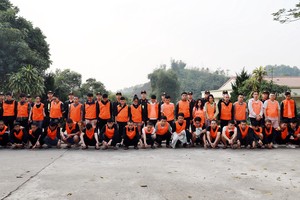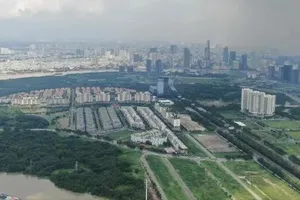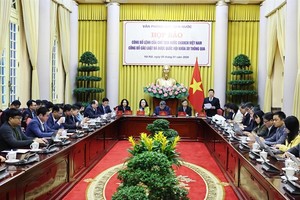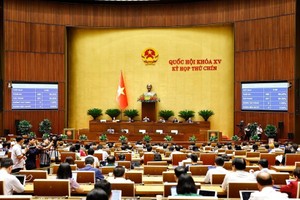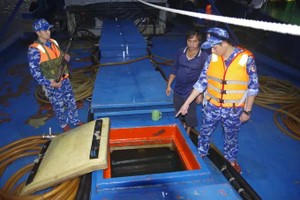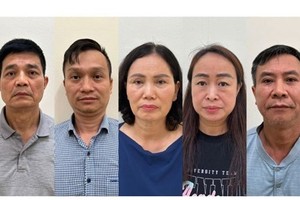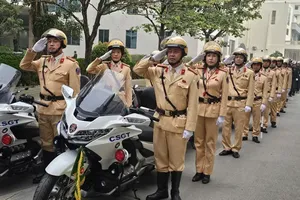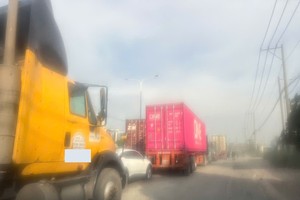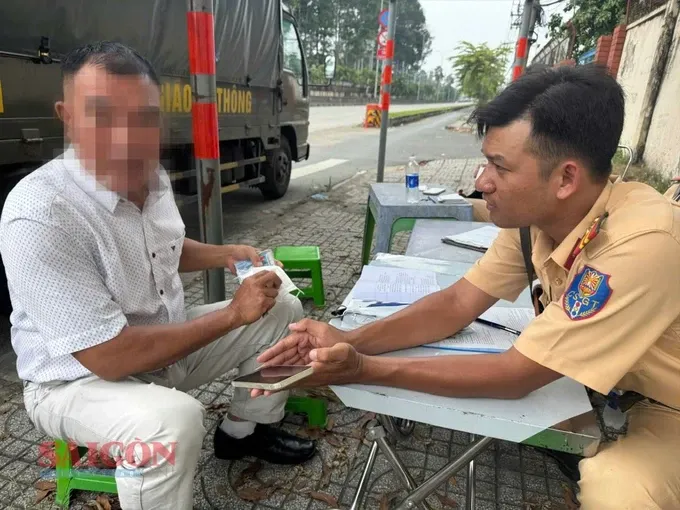
First, Standing Vice Chairman Le Kim Thanh happily informed that after three weeks launching Decree 168/2024/ND-CP (from January 1, 2025), demonstrable progress in traffic safety has been observed.
Reports from the Traffic Police Department indicate a nationwide reduction of 34.27 percent in traffic accidents, 11.41 percent in fatalities, and 34.24 percent in injuries compared to this time last year. Infringements such as running red lights, driving against the flow of traffic, and driving on pavements have decreased markedly, even in the absence of traffic police presence.
This clearly indicates that the imposition of higher penalties under Decree 168 has exerted a considerable influence on public adherence to traffic regulations.
As to the concern about the practicality of Decree 168 when the current traffic infrastructure nationwide is rather limited, the Standing Vice Chairman commented that the emergence of congestion amidst increased compliance highlights several pertinent issues, including urban planning, traffic infrastructure, traffic management and organisation, and the efficacy of public transport.
To mitigate congestion in the context of rising vehicle ownership, particularly in major urban centers like Hanoi and HCMC, a multi-faceted approach is essential.
In the immediate term, local authorities should optimize traffic flow through strategic traffic light timing, deployment of traffic management personnel, and the implementation of technological solutions. Promoting the use of public transport, enhancing traffic monitoring, and imposing stringent penalties for aggressive driving, lane violations, and deliberate infractions that exacerbate congestion are also crucial.
In the medium to long term, local and national authorities should prioritize resource allocation for expanding key routes, constructing overpasses and underpasses at congestion hotspots, developing public parking facilities, enhancing public transport networks, and implementing effective traffic segregation strategies to minimise traffic conflicts.
Local authorities should also consider implementing peak-hour restrictions on private vehicle usage. Furthermore, national and local authorities should address spatial planning and urban development, such as encouraging suburban migration, improving inter-regional connectivity, and constructing additional expressways and inter-provincial overpasses to alleviate pressure on major political and economic hubs like Hanoi and HCMC.
There are opinions that the applicable penalties are disproportionately high, misaligned with prevailing economic conditions and average incomes, unfairly burdening citizens given the asynchronous development of traffic infrastructure, and thus negatively impacting livelihoods.
In response, Standing Vice Chairman Le Kim Thanh said that the enactment of Decree 168, with its robust sanctions, constitutes a judicious measure aimed at enhancing public adherence to traffic laws, reducing accidents, and fostering a responsible road culture.
A civilized urban environment necessitates a high degree of law-abiding behaviors from its citizens. It is crucial to recognise that traffic laws serve not only to maintain order but also to protect individuals, irrespective of infrastructure quality or external circumstances. If all road users demonstrate consistent compliance, concerns regarding penalty levels become unnecessary.
While infrastructural shortcomings undeniably affect traffic flow, these are being progressively addressed. Infrastructure development requires time, resources, and public cooperation, rather than providing a pretext for non-compliance. Reduced violations will contribute to improved traffic flow, thereby facilitating the effectiveness of infrastructural improvements.
While penalties, regardless of their severity, address the symptoms, fostering behavioral changes and cultivating a responsible road culture is paramount for long-term sustainability.
Experience from developed nations demonstrates that establishing a robust road culture requires a comprehensive and sustained strategy involving all societal stakeholders, from government and businesses to individual citizens. This includes early traffic education integrated into the education system at all levels, skills training for adults, and parental role modelling.
Furthermore, community engagement is essential in promoting self-discipline and patience, particularly during peak hours, condemning uncivilized traffic behaviors and legal wrongdoings, coupled with consistently stringent enforcement of penalties for violations.
Finally, the Standing Vice Chairman proposed some feasible solutions for major cities like Hanoi or HCMC to implement Decree 168 more effectively.
Local authorities should conduct thorough analyses of traffic characteristics, flow patterns, and road user behavior in the area they are in charge of so as to develop tailored short-term and long-term solutions.
This should involve inter-agency coordination between the traffic police, urban management, and traffic management authorities to address congestion, widespread dissemination of information regarding traffic flow changes and penalties to ensure public awareness, understanding and support, plus consistent, fair, and transparent enforcement of traffic regulations.
The implementation of Decree 168 presents an opportunity for local authorities to comprehensively evaluate and enhance their traffic systems. In their infrastructure development efforts, major cities like Hanoi and HCMC should prioritize investment in automated traffic management systems, deploying sensor networks and AI-powered cameras at key intersections for real-time traffic monitoring and management. Developing or upgrading digital traffic navigation applications will also empower citizens to optimize their routes.
Cultivating behavioral change is paramount, requiring sustained and concerted efforts involving education, sanctions, infrastructure development, and community engagement. Fostering a sense of civic responsibility, proactive behavioral adjustments, and strict adherence to traffic laws are essential for achieving lasting improvements.


